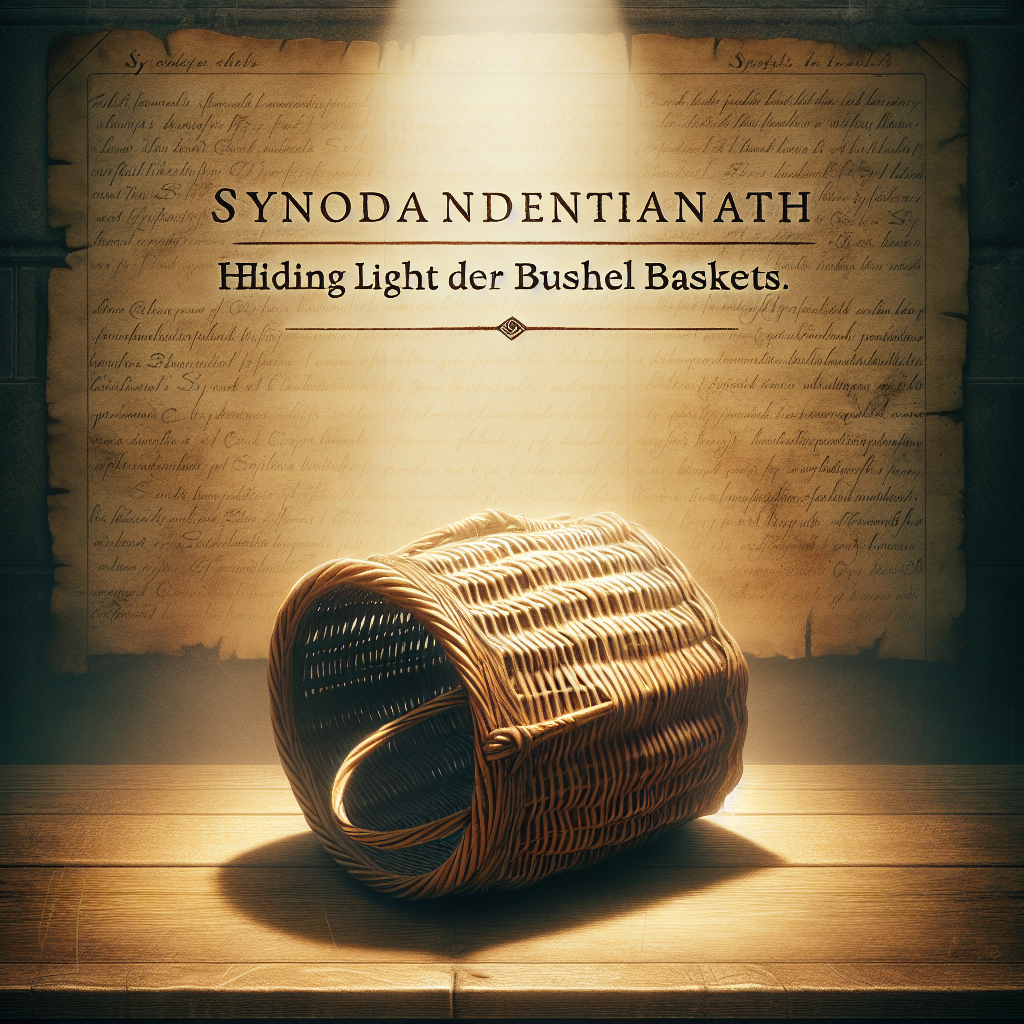The emergence of the Synodal Church marks a troubling chapter for the Roman Catholic Church, revealing a disturbing shift from its foundational principles. The metaphor of lowering a flag of surrender encapsulates the evolution of the Church into a realm where accommodation reigns supreme, overshadowing the core tenets of faith that historically guided its mission. Critics argue that this new direction signifies a retreat into irrelevance, evidenced by a rhetoric that seems incessant yet ultimately devoid of substance, likening it to a tale that offers more noise than significance. The palpable decline in interest among congregants, illustrated by church closures and mergers, echoes a broader disconnection from enriching religious education and meaningful liturgical experiences—a disconnect seemingly ignored by Church officials who continue to retain this process-oriented approach, valuing contemporary consensus over enduring truths.
The phenomenon of the Synodal Church is underscored by a troubling trend among some Catholic leaders, who appear comfortable perpetuating a mode of being that wilfully sidesteps deeper engagement with doctrinal foundations. This trend can be traced, at least partly, to early twentieth-century intellectual currents that sought to redefine truth and understanding within theological discourse. Influential figures like Henri Bergson introduced notions of “intuition” that suggested traditional teachings were outdated, influencing notable thinkers such as the Maritains. In the fallout, pivotal concepts from Thomistic thought lost their prominence, contributing to the Church’s current struggles with identity and purpose amidst a sea of shifting ideologies.
The essence of the Synodalist perspective seems to overshadow the traditional call to sanctity with one geared towards action and activism. This ideological shift is particularly telling, as it recasts the Church’s role from a bastion of eternal truths to a platform for political engagement, often at the expense of spiritual depth and adherence to the Divine will. Instead of fostering a culture of prayer and devotion, this new ethos prioritizes self-awareness and personal autonomy, implicitly endorsing a kind of relativism that undermines traditional authority and theological certainty. With this framework, longstanding doctrines are dismissed as antiquated, further evidenced by recent efforts to dilute or eliminate rites like the Traditional Mass that point to the Church’s historical richness.
Moreover, the embrace of relativism—a rejection of objective truth—in the Synodal approach leads inevitably to instability, where shifting values can render any position moot. This phenomenon echoes within broader cultural movements, leading to a content creation environment where exploration of the unknown becomes paramount, but without an anchor in established truths. This chaotic and contradictory space leaves individuals vulnerable to the consequences of ungrounded beliefs, effectively nullifying their previous convictions and flattening meaningful discourse. Thus, the adoption of such relativistic views threatens individuality and communal identities, ultimately spiraling into a moral vacuum where values continuously shift to accommodate the prevailing winds of thought.
The reliance on authoritarianism by those who criticize traditional authority is another poignant aspect of the Synodalistic stance. This paradox whereby self-proclaimed progressives exert firm control gestures towards a fundamental inconsistency; the very instruments wielded in the name of liberation end up consolidating power. In discussions that trade in the language of freedom, the irony remains that true liberty is increasingly compromised in favor of manipulated compliance. Notables like Nietzsche and Machiavelli articulated the inevitability of coercion when truth is abandoned, suggesting that a reliance on power as a substitute for belief will nudge society toward an antagonistic culture, where genuineness and authentic connection are rendered obsolete.
The contrast between the Synodalists’ practices and traditional postulates becomes further pronounced when viewed through the lens of established ecclesiastical teachings. As articulated by Fr. Reginald Garrigou-Lagrange, the Church holds an inherent intolerance towards principles that contradict its faith, tempered with a pragmatic love for individuals. Conversely, the critics of the Church tend to advocate for a relativistic form of tolerance underlined by a fundamental disbelief, which frequently manifests as aggressive intolerance. Thus, the ongoing struggle within the Church reflects larger existential questions about belief, community, and the role of faith in an increasingly fragmented world. Amidst these shifts, the challenge remains for the Roman Catholic Church to navigate its identity and mission in a way that remains authentic to its profound historical commitments.

